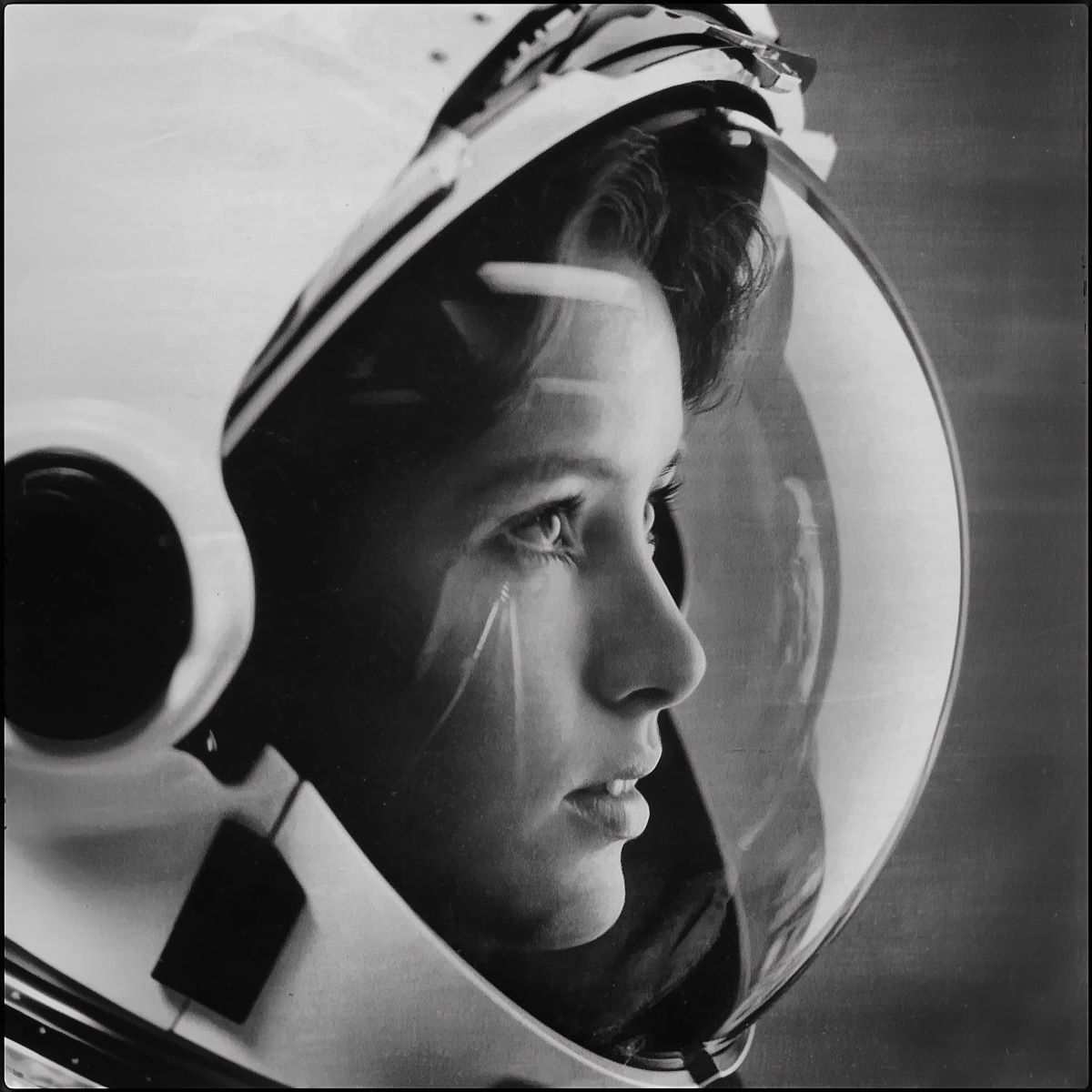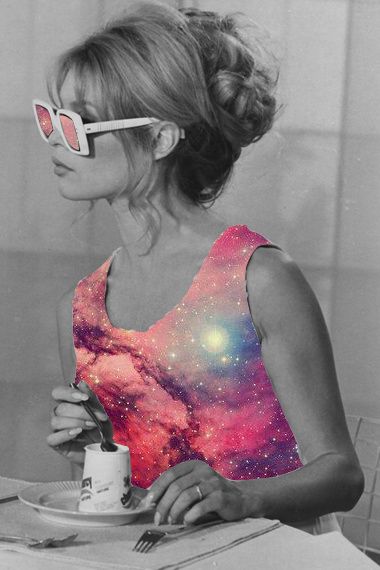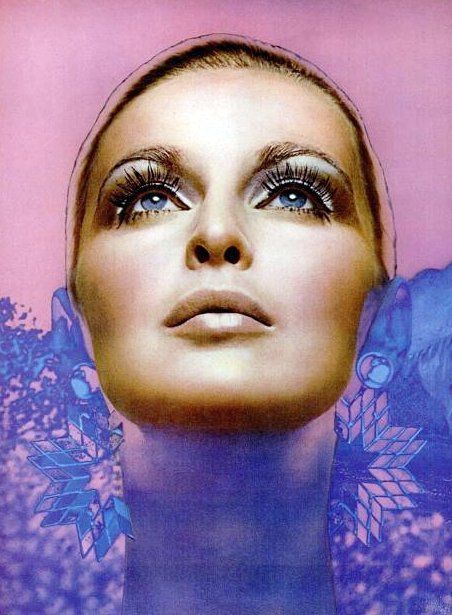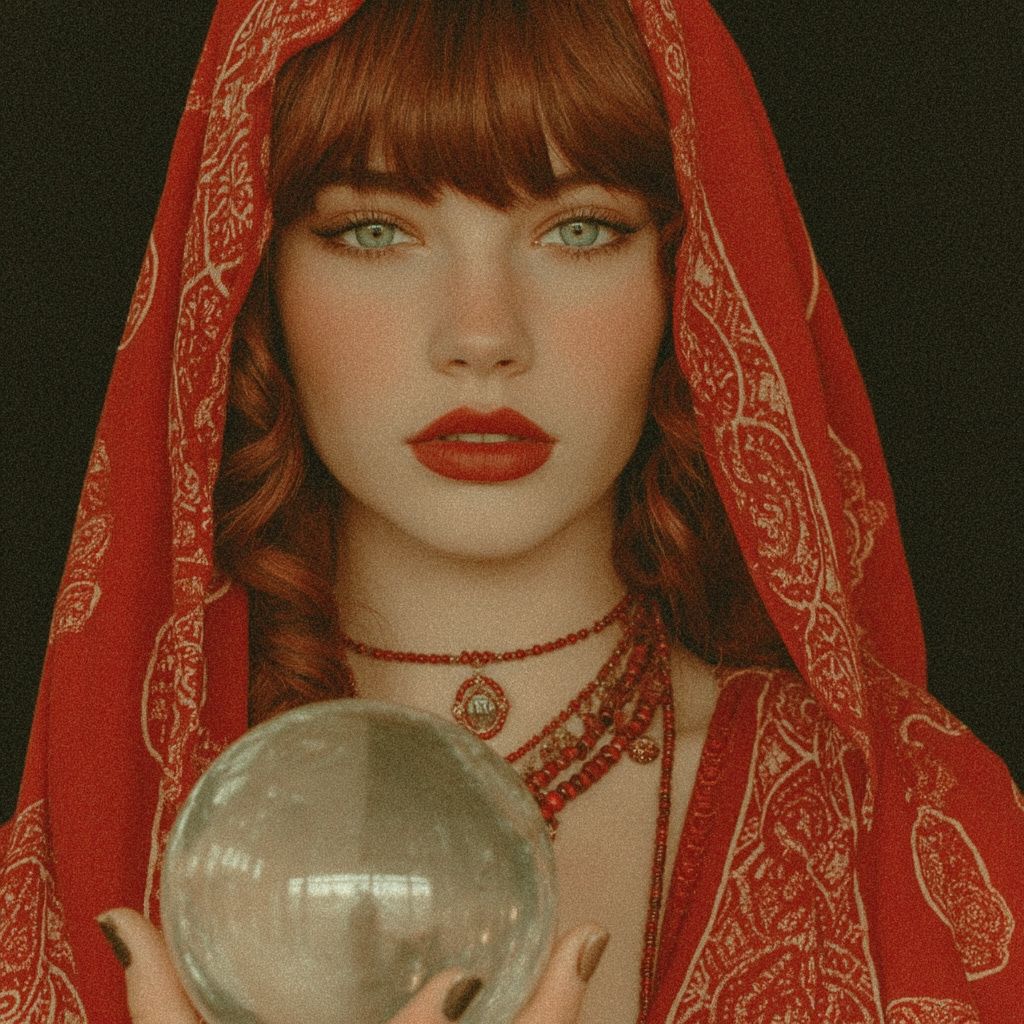
Uranus and Human Progress: A Journey of Enlightenment and Disruption
 In astrology, Uranus is the rebel, the great revolutionary in our planetary lineup! As the first planet discovered with the aid of a telescope—by William Herschel in 1781—Uranus marks that transition from the known to the unknown, the seen to the unseen. In astrology, this planet is all about liberation, upheaval, and those flashes of insight that strike like lightning—because, appropriately, Uranus also rules over electricity. It’s the signal that change is not only possible but necessary.
In astrology, Uranus is the rebel, the great revolutionary in our planetary lineup! As the first planet discovered with the aid of a telescope—by William Herschel in 1781—Uranus marks that transition from the known to the unknown, the seen to the unseen. In astrology, this planet is all about liberation, upheaval, and those flashes of insight that strike like lightning—because, appropriately, Uranus also rules over electricity. It’s the signal that change is not only possible but necessary.
It desires to break the mold, challenge the norms, and rewire your life!” It embodies that tension between the comfort of Saturn’s structure and the thrill of the unknown, urging us to explore the realms that exist just beyond our reach. And the name, “Uranus,” tracing back to the Greek god of the sky, encapsulates this divine link between the vastness above and our little spinning rock below. It’s as if this planet exists to remind us that, despite our groundedness, there’s a bit of stardust in our souls, a pull toward the infinite. In mythology, Uranus was both the sky and the embodiment of the heavens—an eternal, cosmic perspective. It suggests that the universe is not just a distant spectacle, but something with which we can engage directly, if we’re brave enough to lift our gaze upward.
So, next time you think of Uranus (cheeky jokes aside), consider it as that mysterious, tilted planet urging us to tilt our own perspectives. It’s not just a planet—it’s an invitation to step beyond the mundane, to explore those hidden corners of consciousness, and to see the universe not as a series of boundaries, but as a boundless expanse, teeming with possibilities.
Uranus’ astrological influence is like a jolt, breaking free from tradition and encouraging minds to wander down paths less traveled. It’s no surprise that those influenced by Uranus often have a knack for seeing the world in numbers, patterns, and possibilities that the rest of us mere mortals might struggle to comprehend. They are abstract thinkers, able to translate the mysteries of the universe into equations or innovative ideas that push the boundaries of what we think is possible. When Uranus gets involved, it challenges you to think, “Why stay inside the box when you can build a brand-new, ten-dimensional box, and then think outside of that?”
Uranus doesn’t do subtle. Its influence isn’t a gentle push toward new ideas; it’s more like a lightning bolt of inspiration, a sudden epiphany that sparks revolutionary changes. For those under the sway of Uranus, there’s an innate refusal to accept the status quo. They have this itch, a restlessness that drives them to seek out what lies beyond the conventional wisdom. It’s not about being rebellious for the sake of it; it’s about an almost instinctual need to see things differently, to test boundaries, to ask, “What if?” where others might just say, “That’s how it’s always been.”
These Uranian souls often find themselves ahead of their time, thinking thoughts that the world hasn’t yet caught up with. Imagine the scientists, inventors, and philosophers whose ideas were initially laughed off as wild or impractical, only to later be heralded as visionaries. Uranus loves that arc—those tales where the outsider eventually redefines what is possible. And its influence isn’t limited to just scientific or technical fields; it extends to artists, musicians, and creatives who push cultural boundaries, offering new ways to see, hear, and experience the world.
Yet, for all its gifts of brilliance and originality, Uranus’s energy can be a bit, well, volatile. It’s the planet of sudden changes, after all. One moment, everything’s calm, and the next, you’re hit with a disruptive insight or a shift in perspective that changes the whole game. This can make Uranus-ruled folks a bit unpredictable themselves—prone to sudden shifts in interests or a restless desire for change. Uranus brings that reminder that stability is overrated when compared to the thrill of discovery.
It’s the great evolutionary push, the part of us that refuses to settle, urging us to leap forward and explore those uncharted territories of the mind and spirit. For all its quirks and disruptions, Uranus’s influence on human thought and innovation has given us the power to reimagine our world. And whether through groundbreaking technology or radical new philosophies, it’s always taking us closer to the next leap in our collective evolution.
To many, astrology may seem like a quaint relic, a dusty pastime clinging to the superstitions of yesteryear. But look closer, and you find something far richer. The stars aren’t just distant pinpricks in a cold, indifferent sky, but rather storytellers with messages to share. Astrology taps into this primal human longing for meaning. It invites us to look beyond our immediate surroundings and ask, “What if the rhythms of the universe are reflected in the rhythms of our own lives?” By charting the motions of planets, astrologers attempt to decode a language that feels both deeply familiar and utterly profound. Of course, not everyone agrees on what it says—astrology has as many interpretations as there are hearts to interpret it. It’s not about rigid predictions or simplistic notions of fate; it’s about a deeper reflection on who we are and where we fit in the grander scheme. It doesn’t claim to reveal the mechanics of the universe, but rather its meaning. It’s less about the math and more about using the patterns of the heavens as mirrors for our own emotional landscapes. It’s a bit like gazing into a starry night and feeling that quiet but powerful connection to something greater, something ancient and enduring. Astrology’s real gift is its ability to show us that, while we are small, we are not insignificant. Astrology is a valuable contribution—not because it predicts the future with precision, but because it allows us to contemplate our place within the vast mystery of existence. It’s a gentle reminder that we are, after all, a part of this universe—made of the same stardust as the planets that fascinate us, subject to the same cycles and forces.
Uranus sweeps through the mind with an electric rush, and those who find themselves under its influence, well, they suddenly find their minds crackling with that strange, untamable energy—ideas firing like synapses in the brain, visions dancing in vivid colors that defy the drab grey of conventional thinking. Uranus is a force of nature, it rushes forth, carrying with it currents of creative thought, new perspectives, and that ever-elusive spark of genius. And in its wake, it leaves behind a transformed landscape, a place where old assumptions and tired ways of being are swept away, making space for the new and the revolutionary.
You can feel this energy, can’t you? It doesn’t sit still; it’s restless, always reaching beyond the horizon, eager to bring in the next wave of ideas, of innovation, of evolution. It’s the kind of influence that makes time feel like its speeded up—where a moment of insight can stretch into an eternity, and yet an entire lifetime of change can unfold in the blink of an eye. It’s as if Uranus, perched up there in the heavens, has a mission to speed up our journey through the universe, pulling us forward through the ages, dragging us out of our comfort zones into realms of thought we never even dreamed existed.
Yet there’s a strange paradox here, isn’t there? For all its wild, untamed force, the true aim of Uranus seems to be to bring us closer to unity—closer to the realization that beneath all the chaos and upheaval, there’s a thread that connects each of us to one another, and to the universe itself. And in this, Uranus transcends the smallness of individual perspective. It’s not just about the eureka moments, the breakthroughs, and the brilliant flashes of insight that might change a single life or a single field of study. No, Uranus aims higher, seeking to harmonize those flashes into a greater understanding, one that touches every soul, even if they’re not aware of it. It’s like the collective mind—the shared consciousness of humanity—is being tugged gently, yet firmly, toward a new kind of awareness, one that refuses to be constrained by borders, by rigid categories, by “us” and “them.”
Uranian energy asks us to dream bigger, to imagine what life could be like if we stripped away the divisions, if we saw the world not as a series of isolated pieces but as a magnificent whole. It’s the spark behind every revolutionary movement, every technological leap, every social shift that dares to dream of a world that’s more inclusive, more just, more interconnected. It’s as if Uranus says, “Yes, I’m going to shake things up, but that’s the only way you’ll ever see how much bigger the universe is than you thought.”
And the beauty of this force is that it doesn’t just change our thoughts—it changes us. It’s that powerful energy that leads to personal transformations, the moments when you wake up one day and realize you’ve outgrown the old skin, the old ideas, and are ready for something new. And on a grander scale, it’s the reason humanity keeps pushing forward, keeps questioning, keeps striving to understand the mysteries of existence. It’s a force that knows that with every upheaval comes the potential for a deeper harmony, a more enlightened understanding of our place in the cosmos. So when Uranus sweeps through, it’s not just a disruption; it’s an invitation. An invitation to break open the mind, to let the waves of innovation surge through our lives.

It’s as if this planet chose just the right moment to make its entrance—during the age of revolutions, when the world itself was trembling with the desire for change, for liberty, for a grand reimagining of the human experience. It was the time for new beginnings, for breaking free from the chains that have held us too long. It’s the bridge between the vast, swirling galaxies and the massive changes that take place, reminding us that we are part of a greater, universal rhythm. Its very discovery amid the upheaval of the late 18th century wasn’t just a coincidence; it was a universal synchronicity. The American and French Revolutions were tearing down old structures, tossing out monarchs, and shaking up the established order with a fervor that said, “We are done with the past—bring us the future!” And Uranus, discovered in 1781, seemed to echo this sentiment from the far reaches of the solar system.
This is why Uranus is the ruling spirit of rebellion, the embodiment of that restless energy that simply cannot abide by the old ways. It’s not the reckless rebel, though, the one who challenges just for the thrill of defiance. No, Uranus is that deeper, more thoughtful kind of revolutionary—one who disrupts because they see a world that could be better, a world that needs to be remade. It says, “Why follow the worn paths when there are uncharted lands waiting to be explored?” And so, those touched by its influence are often those who find themselves dissatisfied with the ordinary, yearning for the strange and the new, willing to risk the uncertainty of the unknown for a chance at something extraordinary.
Yet, Uranus’s energy isn’t just a loud shout of defiance. It’s speaks to the universal and the personal, between the grand ideas that shape entire societies and the inner revolutions that change a single person’s life. Just as the storms of history upend nations, the energy of Uranus can turn our inner worlds upside down, inviting us to see from new perspectives, to question long-held beliefs, and to discover truths we never knew existed. It’s a call to innovation, but with a purpose—a reminder that in every act of rebellion, in every defiance of the norm, there lies the seed of something greater.
In astrology, Uranus, is the wild card. Its keywords capture its essence like lightning in a bottle: freedom, ideas, suddenness, and that ever-tempting edge of the cutting blade. It’s a planet that doesn’t just sit in the night sky but leaps, dazzles, and dances, offering a kind of liberation that is both exhilarating and unsettling. To be touched by Uranus is to feel that deep, unyielding urge to shrug off the shackles of what has been, to challenge conventions and discover the vastness beyond. It’s like having a spark inside that refuses to let you stay in the same place for too long, a restless wanderer always seeking out the next breakthrough, the next revelation.
It brings those sudden insights, those flashes of clarity that can slice through the thick fog of ignorance like a bolt from the blue! Uranus brings that thrilling jolt of awareness, the kind that makes you sit up in the middle of the night, eyes wide open, thinking, “Yes, that’s it!” It’s the planet of epiphanies, those moments when the mundane falls away and you glimpse something deeper, something beyond. It’s the essence of creativity in its purest form—unpredictable, fierce, and entirely uncontainable. Ideas flow under its influence like a rogue current, dragging the mind away from the ordinary shores and into uncharted waters, where the possibilities are endless.
But, of course, there’s always a price for such brilliance. Uranus’s influence doesn’t come with the gentle patience of a teacher or the measured wisdom of Saturn. This is the energy of the mad scientist, the eccentric inventor, the artist who sees the world in colors others can’t even imagine. And with that comes a certain impatience—a feeling that the pace of everyday life is just too slow, too plodding, too mired in the familiar. It’s as if Uranus says, “Why wait when you can leap?” And that can make those under its spell a bit restless, always feeling like there’s more to see, more to do, more to understand.
This restlessness can be both a gift and a challenge. It drives people to break free from the stifling constraints of tradition, to push through boundaries and venture into the avant-garde. Under Uranus’s influence, you might find yourself questioning everything—why things are the way they are, why certain rules exist, and whether there isn’t a better, more imaginative way to approach the world. It’s an energy that thrives on the radical, the unconventional, the revolutionary, turning misfits into visionaries and outsiders into pioneers.
Yet, with that drive for change comes the shadow side—eccentricity and moodiness, a mercurial nature that can make one difficult to pin down. One minute, the mind is on fire with ideas, and the next, it’s veering off into some unpredictable direction, leaving others baffled and unsure how to follow. It’s like being in the presence of a lightning storm—breathtaking, powerful, but impossible to control or predict. The very same quality that makes Uranus-ruled individuals brilliant can also make them appear capricious, their moods shifting like the winds, leaving those around them struggling to keep up.
And so, the brilliance of Uranus often comes with a hint of chaos. Sometimes misunderstood, sometimes labeled as “difficult,” Uranus-driven souls can come across as aloof or even contrary, when really, they’re just wired to see the world differently. They aren’t satisfied with the status quo because they see beyond it, and once you’ve glimpsed that broader horizon, it’s hard to go back. But isn’t that the essence of true freedom—this willingness to live on the edge of what’s known, to enter into the unknown, even when it means being a little misunderstood? Uranus doesn’t just ask us to think outside the box; it invites us to question whether the box needs to exist at all. It’s the energy that says, “Go on, be wild, be unpredictable, be more than they expect you to be.” And in that unruly, untamable spirit lies the potential for some of the greatest leaps humanity has ever known.
While the path of Uranus can be a bit like riding a rollercoaster in a thunderstorm—thrilling, unpredictable, and maybe a little bit terrifying—its gift is the freedom to dream beyond boundaries, to turn sudden bursts of inspiration into reality, and to show the rest of us that change, no matter how unsettling, is the heartbeat of the universe.
Uranus jolts us out of our habitual thinking patterns with a crackling, transformative charge. It’s not the slow, smoldering change of Saturn or the deep, mysterious pull of Pluto. No, Uranus is more like a sudden bolt of lightning slicing through the night sky, illuminating hidden corners of our consciousness that we never knew existed. It’s the kind of energy that, once felt, can never quite be forgotten. t’s about those aha! moments, those unexpected flashes of insight where something that was obscured suddenly snaps into focus.
It’s like stumbling through a dark forest with just the glow of your phone screen and then—BAM—a flash of lightning reveals the entire landscape in an instant, showing you paths you didn’t know were there. One moment, you’re in the dark, stumbling around, and the next, you’re in a blaze of clarity. This is the power of Uranus: to illuminate, to disrupt, and to transform our inner world in ways that are as exhilarating as they are unsettling.
Carl Jung, with his deep exploration of the human psyche, understood this well. He saw Uranus as a symbol of those radical shifts, those sudden upheavals that can turn a person’s entire understanding of reality on its head. Uranus shakes the psyche, forcing us to see the world anew. Jung’s work with the unconscious—his fascination with archetypes and the deeper currents that shape our inner lives—resonates so deeply with the energy of Uranus. In a sense, Uranus will throw open the windows of your mind, letting in a gust of fresh air (and possibly some chaos) to shake things up. It’s that urge to break free from the restrictive patterns, to challenge what we thought we understood about ourselves and the world.
It’s not always comfortable—no one likes to be jolted out of their routines or to have their beliefs questioned by a sudden flash of revelation. But the potential that lies within that discomfort! It’s there, in the space between the old and the new, that true growth takes place. The lightning bolt is the perfect symbol for Uranus’s influence—wild, uncontrollable, and impossibly bright. It doesn’t ask permission; it simply strikes, leaving behind a transformed landscape, whether that’s a scorched field or a mind suddenly illuminated by new possibilities.
Sometimes, the most radical changes come not from slow and steady progress, but from those moments when everything is turned upside down in a heartbeat. The change that Uranus brings isn’t incremental—it’s revolutionary. It rewires the circuits of the mind, making us see connections we never noticed before, and leaving us forever changed. And isn’t that what true enlightenment is all about? Not a slow dawning of understanding, but a dazzling flash that changes how you see everything in a single instant. It’s a moment when the veil is lifted, and what was hidden is suddenly made clear.
Yet, unlike the warmth of the sun’s light, Uranus’s revelations come with a shock, a sense of urgency. The universe is saying, “Look! See what you’ve been missing!” before the darkness settles back in, leaving you with a newfound perspective and the challenge of integrating this new understanding into your life. Sometimes the mind needs to be shaken awake, needs that electric shock to snap out of complacency and see the world with fresh eyes. Its energy is like a storm in the psyche, one that may leave behind broken branches and rearranged paths, but also brings clarity, new growth, and the kind of transformations that can only come from being brave enough to weather the storm. It’s the planetary energy that urges us to be unafraid of the unexpected, and to understand that the lightning that strikes within us can, if we let it, illuminate the way forward.
In transit, Uranus doesn’t just tiptoe through our lives, it rips through it like a gale-force wind, rearranging the furniture of reality itself. Uranus is the harbinger of change and the architect of progress, a force that refuses to settle for the known when there are whole new realms to explore. It’s the planet that pushes both individuals and societies out of their comfort zones and into the exhilarating yet often disorienting realms of transformation. Liz Greene’s take on Uranus, with its focus on ideological thinking, captures an essential part of this planet’s character. You see, Uranus has this fascinating dual nature—on the one hand, it’s the ultimate iconoclast, breaking down old structures and paradigms, urging us to discard what no longer serves. On the other, it’s fiercely loyal to its own ideals, clinging to its newfound truths and defending its new ideas.
This tension between rebellion and rigidity is what makes Uranus so intriguing. Its energy is like a revolutionary who, after tearing down the old regime, becomes passionately committed to the new order they’ve helped create. It’s not just about change for the sake of it—Uranus seeks to build something better, something more aligned with its vision of how the world ought to be. This is where its affinity for systems comes into play, whether those are grand political ideologies or more esoteric schools of thought. Uranus doesn’t just want to burn down the old—it wants to replace it with something that feels like a revelation, something that’s rooted in a deeper, more universal truth.
But even as Uranus breaks free from the constraints of conventional thinking, it can become stubbornly fixed in its own revolutionary ideas. It’s as if, in its pursuit of truth with that capital “T,” it can lose sight of the fact that truths are often many-layered, multifaceted, and subject to change themselves. This can give Uranian energy a certain doggedness, a commitment to pushing forward even when the ground beneath is shifting. Uranus is the energy that has seen the future and will drag you there kicking and screaming if it has to. And while this makes for brilliant visionaries and innovators, it can also create friction when others aren’t quite ready to keep up with the pace of change.
Yet, for all its unpredictability and occasional stubbornness, the real magic of Uranus lies in its ability to widen our perspective—stretching our minds to see beyond the narrow horizons we often impose on ourselves. It hands us a telescope, inviting us to look beyond the familiar constellations and into the deep unknown. It asks us to question the very nature of space and time, to consider the dimensions of existence that don’t fit neatly into our everyday experience. And in doing so, Uranus taps into that rich reservoir of the collective psyche, channeling ideas that feel both profoundly new and strangely timeless, as if they were always there, waiting just beyond the veil of ordinary perception.
This is where the lightning symbolism becomes so fitting. Lightning, after all, isn’t just a chaotic burst of energy—it’s a sudden, brilliant illumination that changes the landscape in a flash. It reveals the hidden contours of the world around us, just for a moment, before plunging us back into darkness, leaving us with a sense that something important has shifted. Uranus does the same with our understanding. It shatters old ways of thinking, letting us glimpse truths that feel almost too bright to bear, showing us the threads that connect the individual mind to the vastness of the cosmos.
Jeff Green links Uranus not just to the disruptive energy of change, but to a far deeper and more mystical reservoir: the boundless archive of existence itself. If we imagine the Akashic records as a vast library where every thought, every action, and every moment across time is written down in invisible ink, then Uranus is the planet that hands us a flashlight and beckons us to explore its shelves, offering glimpses into that grand, eternal compendium. In this light, Uranus becomes more than just the harbinger of change and upheaval—it’s a bridge to something infinitely larger. It taps into that space where time folds in on itself, where the past, present, and future are all intertwined like strands in a single cosmic web.
Through Uranian energy, we might catch a flash of a memory that doesn’t quite belong to us, a vision of possibilities not yet realized, or a sense of the deeper currents that have shaped human existence across millennia. It’s a little like tuning into a universal radio station that broadcasts the thoughts and experiences of every soul that’s ever lived, if only for a moment. And this, perhaps, is why Uranian insight can feel so sudden and jarring—because it’s like cracking open a window onto the vastness of existence, letting in a gust of knowledge that doesn’t neatly fit into the confines of ordinary time.
It’s those moments when you have a thought that seems to arrive from nowhere. It’s the energy of revelations that feel both intensely personal and somehow universal, as if they belong to all of humanity. The Akashic records, in esoteric traditions, are described as a kind of memory bank—one that stores the details of every experience, every emotion, and every turning point in the history of life. And just as these records are said to be beyond the limits of linear time, Uranus, too, challenges the rigid boundaries of time and space.
Uranus holds a key to a door that opens onto a more expansive view of reality, where time is not a straight line but a spiral, looping back on itself, revealing the interconnectedness of all things. Those sudden flashes of insight, those dreams that feel strangely significant, those moments when the fabric of reality seems to thin and we sense something greater. And yet, just like the lightning bolt that Uranus so often symbolizes, these moments can be quick, illuminating a path for a split second before darkness returns. But in that brief flash, we are shown a truth that transcends the everyday—a truth that reminds us that even as we live out our individual lives, we are part of a story that spans across the ages, written into the stars themselves. It’s this broader perspective that makes Uranus such a potent force for change—not because it disrupts for the sake of it, but because it reveals that everything we think is fixed and permanent is actually part of a larger, ever-changing dance.
It gives us access to those higher realms of knowledge, those insights that come when we are willing to question everything and let go of the limitations we place on our understanding of reality. And when we dare to follow that energy, to let Uranus guide us into those uncharted territories of thought, we find that the answers we seek have been there all along—hidden in the folds of the universe, waiting to be uncovered. Even as we race toward the future, with all the rapid transformations and innovations that Uranus inspires, we are also drawing from a deep well of wisdom that connects us to the very origins of consciousness.

In The Art of Stealing Fire, it hints at that bold, almost Promethean act of daring to reach beyond the mundane, to tap into realms that lie hidden from ordinary perception. It’s a fitting companion to the vibes of Uranus and the esoteric adventures of Edgar Cayce, the “Sleeping Prophet” who seemed to dip his mind into the deepest wells of universal knowledge. Cayce’s story is, of course, one that seems to defy the boundaries of rationality. Here was a man who, in a state of trance, accessed information that he couldn’t possibly have known through conventional means—detailed insights into medical conditions, spiritual truths, and even glimpses of distant pasts and potential futures. It’s as if he had a direct line to that mysterious repository of knowledge, the same one Jeff Green associates with Uranus—the Akashic records. For Cayce, he could draw from in those altered states of consciousness. He became a bridge, a channel through which that higher knowledge could seep into the world of everyday reality.
Uranus, in its role as a conduit, is a divine antenna, picking up frequencies that usually go unnoticed, signals from beyond the veil of ordinary understanding. Under the influence of Uranus, we might find ourselves having those moments where something suddenly makes sense, where a connection snaps into place, even if it seems to have arrived from a source outside our typical thought patterns. This is the planet that encourages us to let go of linear thinking and enter into the swirling, nonlinear nature of true insight—insight that comes from the great, mysterious expanse of the universe.
It’s a kind of knowledge that can’t be boxed into tidy explanations or dissected with logic alone. It requires a surrender, a willingness to step outside of our comfort zones and allow the mind to wander through the realms that lie beyond our usual perceptions. It’s the art of being open to the vastness of existence, to that intuitive, electric spark that Uranus represents—one that shows us that reality is far more layered than we might initially believe. It points to a universe that is alive with hidden dimensions, with unseen truths that shape our lives in ways we only occasionally glimpse. Think of it like tuning an old radio—most of the time, we’re stuck on the same familiar stations, but every now and then, if we turn the dial just right, we pick up a signal from somewhere far beyond, a burst of static that resolves into a voice we’ve never heard before. That’s the essence of Uranian energy: it helps us attune to those hidden frequencies that play just outside our usual range of hearing.
This energy is revolutionary in the truest sense because it challenges us to rethink the very nature of knowledge itself. It says that there is more to understanding than what can be measured and quantified, that the universe is not a closed system but a living, breathing organism with layers upon layers of meaning. To access that kind of insight is to steal fire from the heavens, to bring back a spark that can illuminate not only our personal journeys but the broader pathways of human consciousness.
The Akashic Records or “The Book of Life” can be equated to the universe’s super computer system. It is this system that acts as the central storehouse of all information for every individual who has ever lived upon the earth. More than just a reservoir of events, the Akashic Records contain every deed, word, feeling, thought, and intent that has ever occurred at any time in the history of the world. Much more than simply a memory storehouse, however, these Akashic Records are interactive in that they have a tremendous influence upon our everyday lives, our relationships, Akashic body our feelings and belief systems, and the potential realities we draw toward us.


















 Moon Conjunct Pluto Synastry
Moon Conjunct Pluto Synastry
 Reflections on a Past Venus-Pluto Synastry Aspect
Reflections on a Past Venus-Pluto Synastry Aspect
 Mars Conjunct Pluto Synastry
Mars Conjunct Pluto Synastry
 Mars-Pluto Synastry: Something Quite Dark and Dangerous
Mars-Pluto Synastry: Something Quite Dark and Dangerous
 Venus Trine Pluto: Dark Desires
Venus Trine Pluto: Dark Desires
 Sun Square Pluto Synastry: You’ve Got That Power Over Me
Sun Square Pluto Synastry: You’ve Got That Power Over Me
 Mars in Aquarius: Sex drive
Mars in Aquarius: Sex drive
 Sun Square Pluto Natal Aspect: I Am Titanium
Sun Square Pluto Natal Aspect: I Am Titanium
 Uranus Transits 8th the House: Rebirth from Chaos
Uranus Transits 8th the House: Rebirth from Chaos
 Venus Trine Mars Synastry
Venus Trine Mars Synastry
 Scorpio’s Cold Withdrawal
Scorpio’s Cold Withdrawal
 Mars Conjunct Pluto Natal Aspect: From Ember to Inferno
Mars Conjunct Pluto Natal Aspect: From Ember to Inferno
 Venus in the 5th House
Venus in the 5th House
 Moon in the 8th House: At Home in the Underworld
Moon in the 8th House: At Home in the Underworld
 The Twin Journeys of Saturn’s Returns
The Twin Journeys of Saturn’s Returns
 Venus Conjunct Pluto: The Enchantress of Obsession and Doom
Venus Conjunct Pluto: The Enchantress of Obsession and Doom
 Mercury Square Pluto Natal Aspect
Mercury Square Pluto Natal Aspect
 Pluto Transits Moon: A Time to Grieve
Pluto Transits Moon: A Time to Grieve
 Moon Conjunct Mars Natal Aspect
Moon Conjunct Mars Natal Aspect
 Uranus Transits: 1st House: Winds of Change:
Uranus Transits: 1st House: Winds of Change: